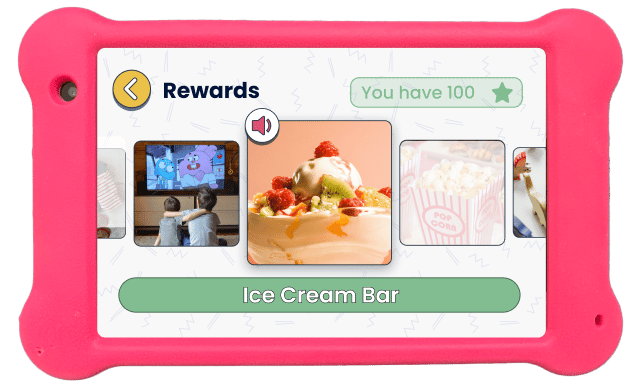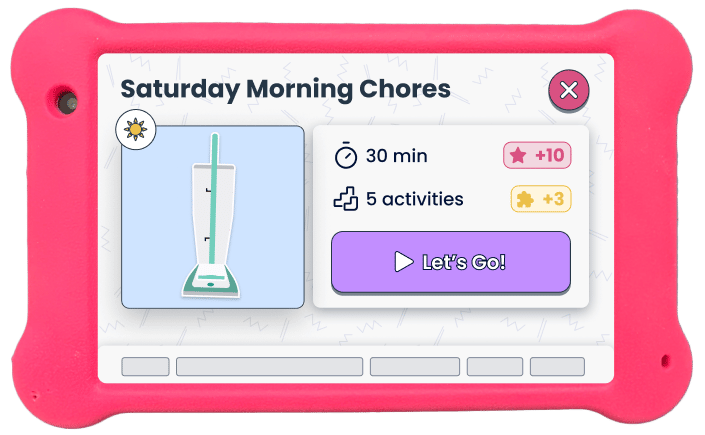How much help does the average family need to successfully parent a child? How much more help do you need when you’re also juggling piles of laminated charts, checklists, and visual supports? If you’re a single parent raising one or more kids with special needs, you know more than most that it takes a village.
Table of Contents
Even in the wake of a challenging divorce, you will want all hands on deck when it’s time to care for your neurodivergent child. Do you know how to co-parent successfully to support your child with special needs?
While transitions are hard for our special needs children, they can be even more challenging for the adults supporting them through the changes. Here’s how to make things a little easier:
Read more: 4 Ways Autism Causes Stress in the Family
Create Consistency With Schedules and Routines
When you step inside your child’s classroom, look around and notice the different schedules and visual aids on the walls and tables. Even in classrooms designed for sensory-friendly experiences, you will see various routines and supports. These are in place because professionals understand the importance of structure and consistency when it comes to caring for children with special needs.
But it’s not just special needs children who benefit from routine and consistency. Even neurotypical children and adults find comfort in having a predictable routine in their daily lives. That’s why one of the best co-parenting tips is to maintain a consistent routine across households. If you are sharing custody, it’s crucial to communicate and coordinate on what your child’s day should look like, no matter where they wake up in the morning. This will provide your child with a sense of stability and security, no matter where they are.
A schedule can become like a visual anchor for an anxious child. Knowing what will come next can alleviate stress and help a child to refocus on tasks and daily care routines. This might be as simple as doing the same tasks in the same order during the morning bathroom routine at both dad’s and mom’s.
When your child knows what to expect, they become masters of agency and independence.
Read more: Tips for Parenting a Child With High Functioning Autism
Agree on a Reward System
Every child has preferred and non-preferred tasks, but our autistic children sometimes have a little more trouble pushing through frustration or discomfort. Rewards are a valuable tool in the autism parents’ toolbox. Things can quickly become challenging if the reward system changes based on which parent is in charge that day, however.
We’ve all given in during moments of weakness, and while that is okay occasionally, it can’t be the norm. Each time we reward an autistic child’s behavior, they learn a little bit more about what we expect of them. Your rewards will be the most effective when your child is demonstrating (or refraining from demonstrating) specific, clearly communicated behaviors.

This is another way in which routines can help children feel safe, even during moments of transition. When they know for a fact that the rules and rewards are the same at dad’s house and mom’s house, there won’t be any confusion. Children who feel safe and understand expectations are less likely to struggle when things get hard.
Discuss Behavioral Expectations in Advance
Likewise, the best co-parents agree on what behavior they expect to see. This might mean discussing your child’s current therapy goals, or simply agreeing on the definition of “quiet time.” What behavior is worthy of a reward token, and what behavior should result in a consequence?
Discussing behavioral expectations often involves coming up with consistent rules. For example, what is an appropriate amount of screen time? This can prevent you from sending mixed signals to your child and prevent meltdowns.
When you’re both aware of your child’s therapy goals, you can assure you are redirecting the appropriate behaviors and rewarding the behavior that you want to see. Kids thrive with consistency – so having the right tools and structure in place to make sure behavior and rewards are consistent between mom or dad’s house is so important.
Talk Consistently
Even if you have rock-solid rules and routines, unique situations pop up all the time. How do you handle a behavior that you’ve never seen before? How do you talk to a teacher about recent assignments when you weren’t the parent helping with homework?
SPONSORED BY: Goally
Goally’s Kid’s Tablet has one of the largest libraries of skill-building videos (like “How to Share” and “What To Do When You’re Lost”) in the Goal Mine app.👇
When it comes down to it, every single piece of parenting advice above is about clear and consistent communication. This can be the hardest part for co-parents! You need to find a way to stay in touch for the benefit of your child, even if you’re no longer close.
This doesn’t need to look the same way for every family. If you can’t handle phone calls, make sure you are open to answering text messages or responding to emails. Sometimes putting a weekly video call on the schedule is all it takes to ensure you keep the lines of communication open.
Use a Digital System
The key to being a great co-parent is consistency. You need a consistent routine, reward system, set of expectations, and line of communication. That might seem like it’s easier said than done. That’s why professionals have created the Goally app for the parents of autistic and neurodiverse children.

The Goally device and suite of apps allows you to form a bespoke care team. This will allow designated parents and caregivers access to your child’s visual schedules, routines, checklists, and rewards systems. You won’t need to meet to exchange heaps of laminated charts, and all of your child’s goals will be accessible in the app itself.
Goally even offers communication solutions, such as an AAC app for non-verbal children. This is a great way to keep communication consistent, no matter where your child is spending the night.
Every aspect of Goally is customizable, so you and your partner can decide on everything from rewards to the daily schedule. You’ll both be able to keep track of your child’s progress from anywhere. It’s a way to make communication easier, even when talking is hard.
How to Co-Parent: Navigating the Journey with an Autistic Child
Co-parenting an autistic child may come with its challenges, but you’ll soon discover that you possess valuable knowledge and skills that can support this journey. The process of co-parenting isn’t vastly different from managing other transitions in life. By trusting your understanding of your child’s unique needs and collaborating with your co-parent, you can create a harmonious and supportive environment for your child.
Here are a few key tips to help you navigate the co-parenting journey effectively:
- Open and Effective Communication: Maintain open lines of communication with your co-parent, sharing insights, observations, and concerns related to your child’s well-being.
- Consistency and Routine: Establish consistent routines and structures that can provide stability and comfort for your child in both households.
- Collaborative Decision-Making: Work together with your co-parent to make important decisions about your child’s education, therapy, and overall care.
- Flexibility and Adaptability: Be willing to adapt your co-parenting approach as your child’s needs evolve, and remain flexible in accommodating changes and adjustments.
- Support Networks: Seek support from professionals, such as therapists or support groups, who can offer guidance and strategies for effective co-parenting.
Goally | Apps To Support Child Development
Looking for fun ways to help your child learn life skills? Try Goally! The Goally tablet comes with award-winning learning apps and video classes to help kids develop the skills they need to become independent with FUN & evidence-based practices.

Our apps teach executive function, language, emotional regulation, finger dexterity skills, and more.
As your child develops new skills, you can increase the difficulty level of the tasks in the app to challenge and motivate them even further. This helps your child grow and progress at their own pace, while also keeping them engaged and excited about their development.

Remember, co-parenting is an ongoing journey, and it’s essential to prioritize your child’s best interests. By fostering cooperation, effective communication, and a shared commitment to your child’s well-being, you can navigate the co-parenting process successfully.
FAQs About How To Co Parent
What is co-parenting? Co-parenting is a collaborative effort between two parents who are raising a child together, even if they are no longer in a romantic relationship.
Why is communication important in co-parenting? Communication is key in co-parenting to ensure that both parents are on the same page when it comes to parenting decisions, expectations, and goals.
How can co-parents maintain consistency in their parenting approach? Co-parents can maintain consistency by establishing clear guidelines for behavior expectations, rewards, and consequences, and by sticking to them consistently.
How can co-parents deal with conflicts that may arise? Co-parents can deal with conflicts by focusing on the best interest of their child, actively listening to each other's concerns, and seeking the help of a mediator if necessary.
What are some effective co-parenting strategies for special needs children? Effective co-parenting strategies for special needs children may include creating a consistent routine, staying informed about their child's therapy and treatment plans, and working closely with their child's healthcare providers and educators.
This post was originally published on 02/28/2022. It was updated on 05/31/23.

Goally
We help parents teach their kids life skills, like doing bedtime and morning independently. Backed by science, we incorporate evidence-based practices and expert-informed designs in all of our apps and content.






